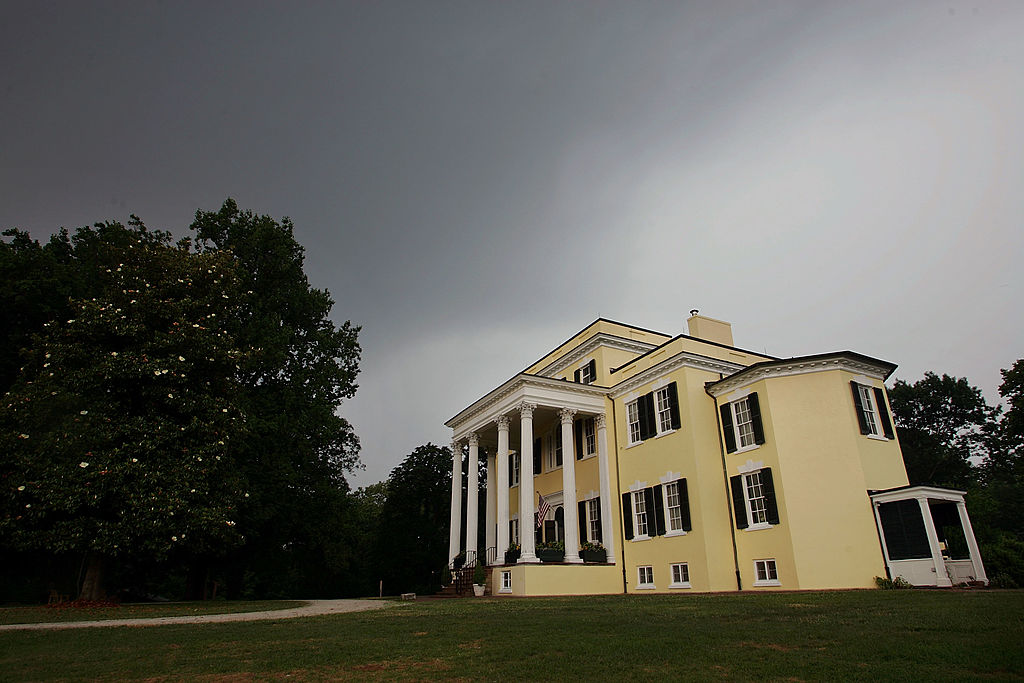
National Trust should not be sowing wild Oatlands
Quin Hillyer
Video Embed
Rather than fight a lawsuit from the governing board of the Virginia house and gardens known as Oatlands, the revamped management team of the National Trust for Historic Preservation should pick up the phone to make amends.
An out-of-court accommodation serves everybody’s interest better than a protracted, nasty court battle.
The National Trust has been under fire for the embrace of racially obsessed wokeness in general and most prominently for what amounted to a hostile takeover of the contractually independent board of constitutional founder James Madison’s Montpelier estate. In the wake of the Montpelier turmoil and the Feb. 2 lawsuit by the Oatlands board, National Trust President and CEO Paul Edmondson left his post earlier than a number of close observers expected. (No direct cause and effect have been established.) National Trust Board of Trustees Chairman Jay Clemens stepped down from the board to take the day-to-day reins as interim president and CEO.

Among his other headaches, Clemens now must manage a sad situation at Oatlands that really shouldn’t have reached the level of a lawsuit. Oatlands is a stately, historic mansion with seasonally stunning gardens. It is owned by the National Trust but, similar to the situation at Montpelier, is managed by a largely independent board.
At least in the Oatlands case, there seems to be no ideological aspect to the situation. Still, the same attitude adjustment that the National Trust should show regarding Oatlands could also lead to a reset of management style that could start reversing the tragedy at Montpelier.
For years, the management of Oatlands has been complaining to the National Trust that the National Trust is skimping on its financial obligations for the property’s upkeep. At some point, Oatlands also turned over to the National Trust an adjoining property, for which the National Trust pledged to seek a conservation easement that would serve as a source of funding for Oatlands.
The lawsuit alleges that the National Trust has breached its fiduciary duty to Oatlands in multiple ways, including by its failure to secure the easement, allegedly shortchanging annual endowment payments due to Oatlands, and vetoing necessary repairs. The result of the latter, Oatlands claims, with graphic photographs filed in court, is a horrid situation of disrepair, including water damage and mold accumulation. The suit also claims that Oatlands leaders on multiple occasions requested meetings with Edmondson to discuss the situation but that the requests repeatedly were denied.
As far as I can tell, the National Trust has not answered the substance of the allegations, but it did file a motion to move the lawsuit from the Virginia court in which it was filed to a federal district court instead.
This column is not the place to delve into granular details of the Oatlands suit, much less to try to conduct a virtual litigation of it. Instead, the essential imperative is to remind the National Trust that it does indeed hold a trust for the public benefit and that it should act accordingly. As the National Trust’s own court filing prominently notes, the National Trust is an entity specifically created by law, by Congress, “to facilitate public participation in the preservation of sites, buildings, and objects of national significance or interest.”
It is in the interest of both the public and the National Trust for it to keep in good shape the lovely property that it owns. If it falls into massive disrepair, it will eventually suck even more funds from the National Trust itself.
CLICK HERE TO READ MORE FROM THE WASHINGTON EXAMINER
Clemens should pick up the phone, call Oatlands CEO Caleb Schutz, and offer to resolve the situation amicably through renewed, mutual cooperation.
But if the National Trust mismanagement continues at Oatlands, at Montpelier, and in general, perhaps Congress should revisit the law and force the National Trust itself to shape up.
